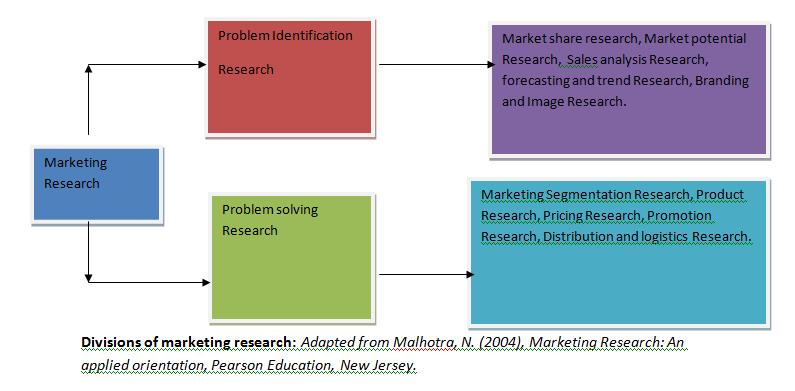

2017-02-23 12:00:00 AM | 15041 ![]() Print
Print ![]() PDF
PDF
Why do most business fail? most typical reasons are not the most obvious, for sure. But my concession is that they do fail because they fail to plan, hence the plan to fail already in such business.
This post is to highlight the fundamental reason why any SME should always consider Marketing research in their marketing Planning process. Infact I believe it should be included in your business feasibility studies.

Marketing research involves a process or processes of getting information that connect producers, customers, and end users to help a marketer make decisions that are data driven in evaluating marketing actions; monitoring marketing performance; and improving our understanding of marketing as a process. Market research specifies the information required to address these issues: designs the method for collecting information. Manages and implements the data-collection process; analyzes the results; and communicates the findings and their implications.

Therefore, marketing research can be defined as an information input for decisions, and not just the evaluation of decisions that have been made. Note, marketing research alone does not assure success; the intelligent use of marketing research information is the key, which is a result of how such information can be used.
Barry J. Babin, William G. Zikmund (2016, pg 13) also stated that “…the prime managerial value of marketing research comes from the reduced uncertainty that results from information and facilitates decision making about marketing strategies and tactics to achieve an organization’s strategic goals”. This is in view that developing and implementing a Marketing Strategy involves four stages:
Furthermore, marketing research is required in the information-management process, which includes:
(1) Specification on the type of information needed.
(2) Collection and analysis of information needed.
(3) Interpreting the information to correlate with the objectives of the research.
For example, Paurav Shukla (2008, pg.16) cited a research project focusing on consumers’ preference of green tea in the UK provided results on the following:
The example demonstrates that a single marketing research can encompass both problem identification and problem solving research. Furthermore, the research process involving both these research strands is common in nature.
The role and limitations of marketing research
"Marketing research does not make decisions and it does not guarantee success". Marketing managers may seek advice from marketing research specialists, and indeed it is important that research reports should specify alternative courses of action and the probability of success, where possible, of these alternatives. However, it is marketing managers who make the final marketing decision and not the researcher. The second observation, that marketing research does not guarantee success, is simply a recognition of the environment within which marketing takes place. In the fields of science and engineering researchers are often working with deterministic models of the world where y = f(x). That is, x is a necessary and sufficient condition for y to occur. For instance, an increase in pressure is usually necessary and sufficient to bring about a rise in air temperature. In the social sciences, and this includes marketing and marketing research, the phenomenon under investigation rarely, if ever, lends itself to deterministic modelling. Consider the marketing problem of determining how much to spend on promotion in order to achieve a given market share. The link between promotional expenditure and sales is not so direct as that between pressure and temperature. There are a great many more intervening variables, including: the media used, the effectiveness of the promotional message, the length and frequency of the campaign, not to mention the many dimensions of the product, price and distribution. Marketing researchers work with probabilistic models of the form:
y = f(x1)..(fx2)...f(xn)...
This reflects the fact that in order for a target market share to be reached some promotion (amount unknown) is necessary but will not be sufficient, on its own, to achieve the target. Y is a function of a number of variables and the interactions between them. The model is further complicated by the fact that these interactions are themselves often not understood. It is for these reasons that marketing researchers cannot guarantee that decisions based on their information will always prove 'successful'. Rather the best that a competent researcher and a well-designed study will be able to offer is a reduction for uncertainty surrounding the decision.
Examples: International Missteps Caused by Environmental Differences
The product was backed up by a Twitter marketing campaign entitled #UpforWhatever. Surely someone at Budweiser would have realized this campaign was going to be doomed from the beginning.
CONCLUSION:
Marketing research plays a vital role in marketing as a tool for gathering and analyzing data from producers, consumers, and end users to create quantitative information that are used in decision-making. From the examples above, we can deduce that the need for marketing research can help any firm in planning and identifying marketing problems and opportunities before venturing into the marketplace.
Reference list:
Barry J. Babin, William G. Zikmund: Exploring Marketing Research (2016, pg.13).
Dr Dawn Iacobucci, Dr Gilbert a Churchill Jr: Marketing Research Methodology Foundations. 11th Edition(2015, pg. 6,7).
Malhotra, N. (2004), Marketing Research: An applied orientation, Pearson Education, New Jersey.
Paurav Shukla: Essentials of Marketing Research (2008, pg.16).
Roles and Limitations of Marketing Research : http://www.fao.org/docrep/w3241e/w3241e02.htm
Pepsi Cultural Blunders, Source: http://www.campaignasia.com/article/cultural-blunders-brands-gone-wrong/426043
Budlight marketing Failures, Source: https://blog.printsome.com/marketing-failures/

I am a seo web analyst and have a love for anything online marketing. Have been able to perform researches using the built up internet marketing tool; seo web analyst as a case study and will be using the web marketing tool (platform).
How To Fix Cloudflare Error 522 Connection Timed Out
How To Optimize Cache Performance via HTACCESS Apache Server
How To Fix GA4 Showing Wrong Domain Traffic
How To Reactivate Google Adsense Account
How Do You Write Pitch Deck That Wins Investors
Effective Lead Magnet Funnel Examples For Businesses
How To Promote FMCG Products Using Digital Marketing
The Main Objectives Of SEO in Digital Marketing
How Artificial Intelligence Is Transforming Digital Marketing
Google CEO Sundar Pichai: Search will profoundly change in 2025